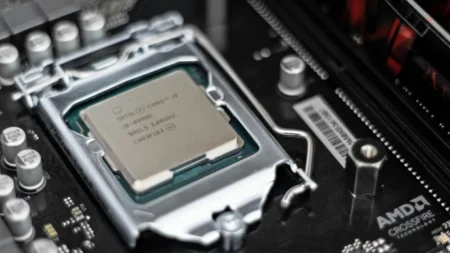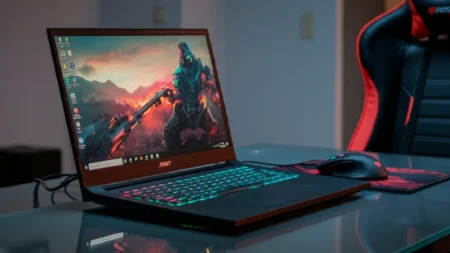If you make a huge one, people will fight over whether it can replace a laptop. If you make a little phone, some people will desire it to be a huge phone. Since then-CEO Steve Jobs launched Samsung’s ground-breaking iPad in 2010, these discussions have resurfaced.
At the time, it was a meaningless discussion. Only the most serious tech nerds with specialized job types would consider a stunt like switching from a phone to a tablet. Despite the entire buzz, few people tried it.
The iPad and other tablets were limited to lean-back, content-consumption gadget status because neither the world nor the tablets were ready.
Laptops With Two Functions, the Best of Both Worlds
Aside from large-screen phones and light laptops, another recent development is most suggestive of whether or not you need a tablet. According to IDC, while tablet sales are down for the second quarter, sales of 2-in-1 tablets that mirror PCs are increasing.
People are buying tablets with detachable keyboards, such as the Microsoft Surface and the iPad Pro, since they may be used to replace PCs or laptops. Right now, tablets have a major issue with writing and input. Virtual keyboards and touch gestures are useful, but they can’t compete with a physical keyboard, mouse, or trackpad in precise precision and speed.
A tablet can also be used as a laptop, and a laptop can also be used as a tablet, both of which can switch between functions as needed.
E-Book Tablets
With that in mind, if you want to use your tablet most of the time, you may want to read eBooks, you should reconsider. E-readers are healthier for your eyes since they use e-ink technology, can store all of your eBooks at once, and are lighter and, therefore, more comfortable.
In reality, the weight of e-readers is really important. As you flip through the pages, you’ll be holding this gadget in your hand for a long time, and even 7-inch tablets are heavy enough that your arm will feel strained after a few minutes.
If you’re a bibliophile, you should avoid using a tablet in favor of a Kindle. The only exception is while reading comic books, for which tablets are still superior to e-readers.
Smartphones and computers may still be preferred by many. However, the new fact is that we no longer require them for the first time in history.
Increasingly, workers are using tablet computers in the office
People are creatures of habit and have a strong desire to repeat them to do things the way they used to be done. That law, however, also applies to young people who are just starting employment. Many recent high school grads relied almost entirely on cellphones and iPads. Using items like keyboards and mice will not be as established a habit as using a contact show.
Laptop and desktop computers are being produced year after year. Customers retire. In contrast, a new generation of touch-screen consumers joins the workforce. (Each is provided via a pill.)
The mobile phone and textual content community become less important with each passing year. At the same time, tablets get more power and performance. That gets me to the top of this column’s level.
Employees could choose any device they wanted for personal usage. On the other hand, Tablets make more sense every day for businesses that issue computers to their employees to use for work.
A pill may be used as a unified communication device, allowing for all sorts of communication, including the equivalent of a telephone call and text message – all without using a mobile network. A pill may also be used as a laptop computer.
Instead of buying a $1,200 smartphone and a $1,200 laptop computer for employees, businesses could buy a single $800 tablet (like the iPad Mini 6) with a wireless keyboard, mouse, and headphones to cover all bases.
Corporations would save a fortune, make it easier to implement security techniques for remote and hybrid employees, provide mobility and highly effective 5G communication instruments, and meet skilled and brand new workers.
This notion may or may not pique your interest in your company. Nonetheless, it is critical to pause and consider that the world has changed, and tablets have changed.
Smartphones and computers should continue to be popular. However, the new reality is that we no longer desire them for the first time in history.
A tablet may serve as a unified communication device, capable of handling all types of text messages and phone calls without an actual phone line. A tablet may also be used as a laptop.
Instead of buying a $1,200 smartphone and a $1,200 laptop for staff, employers could consider purchasing a single $800 tablet with a wireless keyboard, mouse, and headphones to cover all of their bases.
Companies would save a lot of money, make security solutions for remote and hybrid workers easier to install, give mobility and highly competent 5G communication tools, and please seasoned and new staff.
This concept may or may not be appealing to your boss. But it’s crucial to remember that the world has evolved, and tablets have also changed.
Discover more from Technical Master - Gadgets Reviews, Guides and Gaming News
Subscribe to get the latest posts sent to your email.








